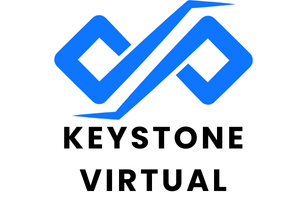Revolutionizing Online Identity Verification: The Role of Blockchain Technology in Streamlining Processes
In the ever-expanding digital landscape, the issue of online identity verification has become a critical concern. Traditional identity systems, reliant on centralized databases, have proven vulnerable to data breaches, identity theft, and privacy violations. However, the emergence of blockchain technology is transforming the way we approach identity verification, offering a more secure, decentralized, and user-controlled solution.
Why Identity Verification Matters More Than Ever in a Digital-First Economy
Identity verification is no longer just a security measure; it is the foundation of trust in the digital economy. As online interactions multiply, companies face increasing pressure to confirm identities while balancing privacy and security. Legacy systems, which rely on centralized databases, have long struggled with this challenge, leading to numerous security breaches and privacy issues that have eroded user trust.
Also to see : Revolutionizing Smart Home Automation: The Role of AI in Transforming User Experience
For instance, consider the scenario where a person’s credit card information is stolen, as happened to the author’s mother at an airport kiosk. Such incidents highlight the urgent need for robust and secure identity verification methods. Blockchain technology steps in as a game-changer, enabling decentralized identity management that gives individuals greater control over their personal data.
The Role of Blockchain in Revolutionizing Identity Verification
Blockchain technology is revolutionizing our approach to identity verification by introducing decentralized and user-controlled systems. Here’s how it works:
Have you seen this : Mastering AI: Crafting a Robust Network for Essential Infrastructure Resilience
Decentralized Identity (DID) Solutions
Blockchain-based DID solutions offer a “self-sovereign” identity model, where users have full control over their data. This model allows users to share specific attributes without disclosing unnecessary information. For example, a user can prove their age to access a service without revealing their birthdate, or confirm employment records without exposing personal contact details.
Enhanced Security and Privacy
Blockchain uses distributed ledger technology to allow individuals to own and control their identities directly. This shift reduces the need for third-party intermediaries, enhancing privacy and security. By storing identity data on a blockchain, individuals maintain ownership of their information and can selectively share it with service providers. This approach significantly increases security and addresses the growing demand for data privacy.
How Biometrics and Blockchain Are Revolutionizing Digital Identity Security
The combination of biometrics and blockchain technology is further fortifying digital identity security.
Biometric Verification
Biometrics, which use unique physical characteristics like fingerprints, iris patterns, facial features, and voice prints, are more secure than traditional methods such as passwords or PINs. These biometric traits are exceedingly difficult to reproduce, providing a higher level of protection. When combined with blockchain, biometric data is secured by maintaining a cryptographic representation rather than the real data itself. This ensures that even if someone gains access to the blockchain, they cannot reassemble the biometric information.
Controlled Sharing and Decentralized Control
The integration of biometrics and blockchain allows for controlled sharing of information. Individuals can selectively share their biometric data with specific organizations or entities, enhancing security and transparency. The decentralized nature of the system gives users more control over their digital identities, promoting trust and transparency in managing personal information.
Key Features of Blockchain-Based Identity Verification
Here are some key features that make blockchain-based identity verification stand out:
- Controlled Sharing: Individuals can selectively share their information with specific organizations or entities.
- Decentralized Control: The system’s decentralized nature enhances security and transparency, giving users more control over their digital identities.
- Zero-Knowledge Proofs: Enable privacy-preserving verification and data minimization, ensuring that only necessary information is shared.
- Interoperability: Makes data portable and compliant with open standards, facilitating seamless interactions across different platforms.
- Instant Verification: Allows for the quick verification of credentials, enhancing the efficiency of identity verification processes.
Practical Examples and Use Cases
Healthcare Sector
In the healthcare sector, blockchain-based identity verification can address critical issues such as patient misidentification and data insecurity. For example, the Dell Medical team has developed a solution that uses smartphones’ biometric capabilities, such as thumbprint verification, to store patient information on a decentralized blockchain ledger. This ensures that patient data remains secure and cannot be easily lost or hacked, while individuals maintain control over their data and grant explicit consent for sharing.
Financial Sector
In the financial sector, the integration of Legal Entity Identifiers (LEIs) with blockchain technology is transforming digital identity management. LEIs provide a standardized way to verify legal entities, while blockchain ensures this information is securely stored and easily accessible. This combination enhances transparency, reduces fraud, and ensures compliance with regulatory requirements, making financial transactions more secure and efficient.
Regulatory Challenges and Future Trends
Regulatory Challenges
While blockchain-based identity verification offers numerous benefits, it also faces regulatory challenges. Ensuring compliance with data protection regulations such as GDPR and CCPA is crucial. Additionally, the lack of standardized frameworks for blockchain-based identity systems can create hurdles. However, experts like Stephanie Tower and Amor Maclang believe that these challenges can be overcome with the right regulatory support and technological advancements.
Future Trends
The future of digital identity verification is promising, with several trends on the horizon:
- Increased Use of Biometrics: Biometric technologies, such as fingerprint and iris scanning, will become more prevalent, enhancing security and convenience.
- Blockchain Technology: Blockchain will continue to play a key role in providing decentralized and secure methods for verifying identities.
- AI and Machine Learning: These technologies will enhance the accuracy and efficiency of digital identity verification solutions, improving fraud detection capabilities over time.
Benefits of Blockchain-Based Identity Verification
Here is a comprehensive table highlighting the benefits of blockchain-based identity verification:
| Benefit | Description |
|---|---|
| Enhanced Security | Decentralized storage reduces the risk of data breaches and fraud. |
| Global Transparency | Real-time verification and transparent transaction records. |
| Controlled Sharing | Individuals can selectively share their information. |
| Decentralized Control | Users have more control over their digital identities. |
| Zero-Knowledge Proofs | Privacy-preserving verification and data minimization. |
| Interoperability | Data is portable and compliant with open standards. |
| Instant Verification | Quick verification of credentials enhances efficiency. |
| Compliance and Risk Management | Ensures compliance with regulations and effective risk management. |
Blockchain technology is revolutionizing online identity verification by offering a secure, decentralized, and user-controlled solution. As we navigate the complexities of the digital age, it is clear that traditional identity systems are no longer sufficient. The integration of blockchain, biometrics, and other advanced technologies is paving the way for a more secure, inclusive, and trustworthy digital economy.
In the words of Amor Maclang, Convenor of Digital Pilipinas, “Blockchain technology offers a promising solution to some of the most pressing identity issues we face today.” As we move forward, it is essential to embrace these technological advancements to ensure that our digital identities are protected and our online interactions are secure and trustworthy.
Practical Insights and Actionable Advice
For individuals and businesses looking to adopt blockchain-based identity verification, here are some practical insights and actionable advice:
- Understand the Technology: Educate yourself on how blockchain and biometrics work together to enhance security and privacy.
- Choose the Right Platform: Select a platform that offers decentralized identity management, such as Dock’s web3 identity solutions.
- Ensure Compliance: Make sure the solution you choose complies with relevant data protection regulations.
- Implement Biometric Verification: Use biometric technologies to add an extra layer of security to your identity verification processes.
- Stay Updated: Keep abreast of the latest trends and advancements in blockchain and identity verification technologies.
By adopting these strategies, you can ensure that your digital identities are secure, private, and under your control, paving the way for a more secure and inclusive digital economy.











